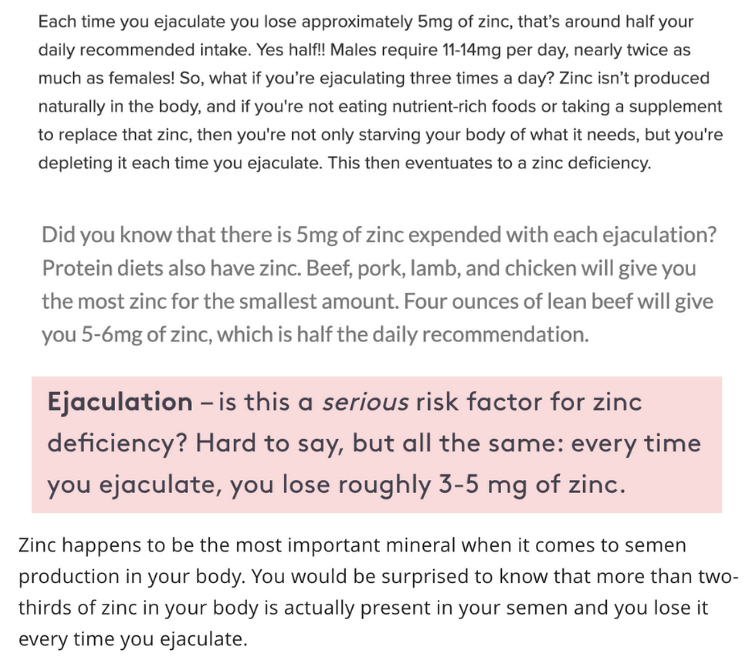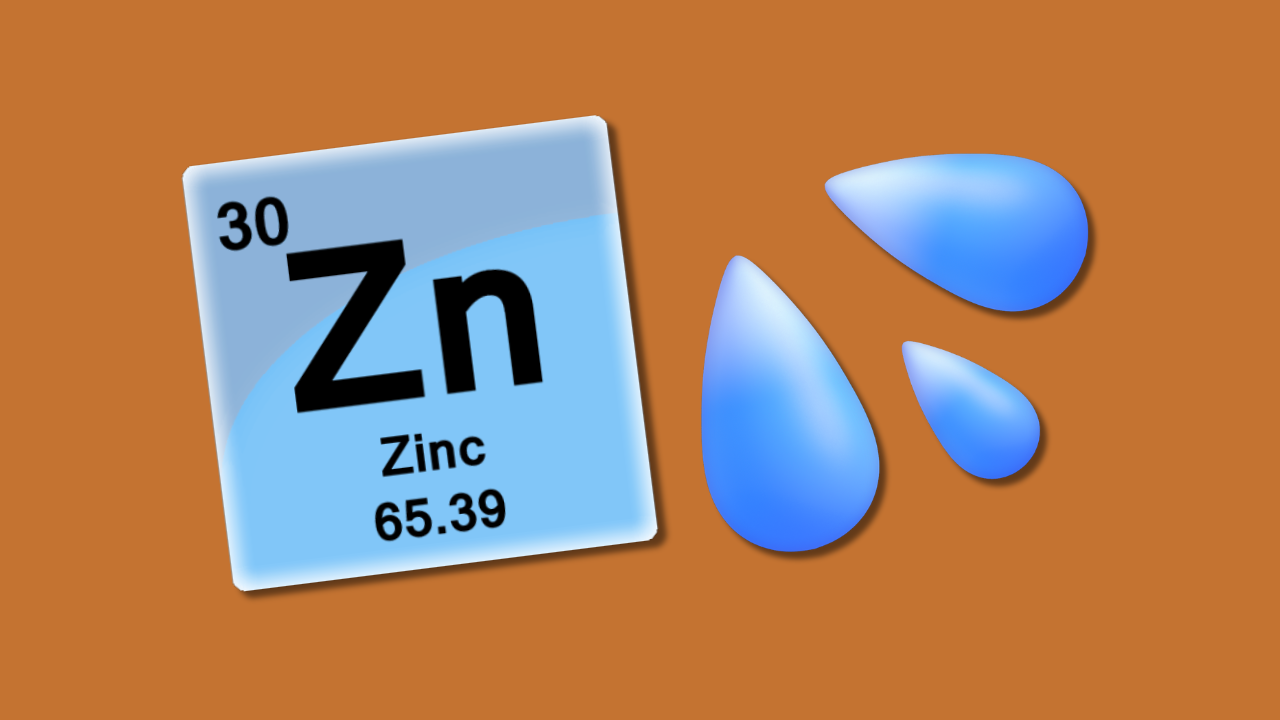A colleague of mine recently made a claim about zinc and ejaculation. They're wrong and I want to explain why.
For context, here is their claim as well as my request for a citation and their response to my request:

Can you guess what I found plastered all over Google? I found my colleague and several others making the same claim:

Again, no-one provides any evidence. So, let's break this claim down.
The World Health Organisation (2004), European Food Safety Authority (2014), and Institute of Medicine (2002) recommend the daily intake of zinc for men to be approximately 11-14mg.

My colleague claims that half of a man's daily intake of zinc is lost each time he ejaculates, which would be approximately 6mg per ejaculation. However, researchers have found the following concentrations of zinc in their study participants' seminal fluid:
Umeyama et al. (1986) = 171.1 μg/ml
Tikkiwal et al. (1986) = 78.9 μg/ml
Omu et al. (1998) = 170.6 μg/ml
Lewis-Jones et al. (1996) = 118 μg/ml
Chia et al. (2000) = 183.6 μg/ml
Wong et al. (2000) = 97.5 μg/ml
Wong et al. (2001) = 91.1 μg/ml
Kruse et al. (2002) = 123 μg/ml
Dissanayake et al (2010) = 121 μg/ml
Let's take the most concentrated measurement from this list of studies and do some quick math:
Chia et al. (2000) found a seminal zinc concentration of 183.6 μg/ml, which is micrograms per millilitre. To convert the measurement into milligrams per millilitre, we divide by 1000, which give us 0.1836 mg/ml. According to the International Society for Sexual Medicine, on average, men expel between 1.25 and 5.00 ml of semen each time they ejaculate. So, according to this, a 5 ml ejaculation would have 0.918 mg of zinc.
Let’s do some more calculations:
According to Osadchuk et al. (2021), the seminal concentration of zinc is
1571.8 μmol/L, or micromoles per litre, so we'll convert to moles per litre. 1571.8 μmol/L = 0.001571.8 mol/L. And, given that the molecular weight of Zinc is 65.38 u, 0.001571.8 mol/L = 0.102764 mg/ml. Again, we'll be generous and presume an ejaculation of 5 ml. 0.102764 mg/ml x 5 ml = 0.51482 mg.
Here's another way of looking at this:
For their formulation of a semen simulant, Owen and Katz (2013) determined a target zinc concentration of 16.5 mg/100 mL, which reduced down to one ejaculation is 0.825 mg/5 ml. So, assuming a man ejaculates 5 ml, he will lose less than 1 mg per ejaculation, a far cry from my colleagues’ claim that 6mg is lost. Not to mention that glass containers can contain enough zinc to influence zinc concentration measurements (Colleen et al, 1975).
Revisiting the recommendations from the Institute of Medicine and European Food Safety Authority, as well as the International Zinc Nutrition Consultative Group, we see they include seminal zinc losses using data from 2 studies
(Johnson et al., 1993; Hunt et al., 1992):

They suggest 0.1 mg of zinc is lost per day based on a mean ejaculate volume of 2.8 ml and a weekly mean of 2.45 ejaculations. Again, significantly less than 6mg per ejaculation.
So, not only is the claim demonstrably untrue, even the internal logic of the original claim is inconsistent. You cannot lose half your daily zinc intake every time you ejaculate because on a day that you ejaculate three times, the third ejaculation would have zero zinc in it.
Zinc is of course important for sexual health and zinc deficiency is a real issue, but don't fall for this myth. And if you're making claims like this, please cite some actual evidence.

